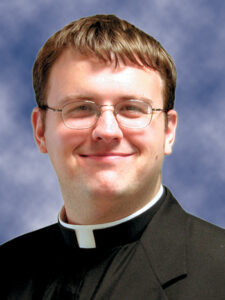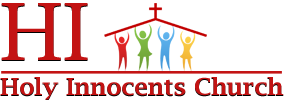 Dear Parishioners,
Dear Parishioners,
The Pew Research Center recently released the results of a survey about belief in the Eucharist. According to the survey, only about thirty percent of those who consider themselves to be Catholic believe that the Eucharist really is the body and blood of Christ. Of course this number goes up to sixty-three percent for those who attend Mass at least weekly. But, even that number should be nearly one-hundred percent since to receive the Eucharist (and almost everyone at Mass does receive, whether they should or not) without actually believing in the Eucharist is actually a sacrilege. (see 1 Cor 11:29) I think it is very evident that something has gone terribly wrong that this most basic truth of the faith is not being communicated.
I have noticed that when addressing this issue, most Catholic commentators point to poor catechesis and lack of preaching on this topic are to blame. Simply, people don’t believe because they were not told what to believe. But, I disagree. If you look at the information given by the study, while lack of knowledge on Church teaching correlates to lack of belief and practice, there is twenty-two percent of Catholics who know what the Church believes, but still do not hold the belief themselves. Catechesis is necessary and good, but it is not sufficient to handle the problem of lack of belief.
I believe what is missing is a loss of the sense of the sacred. When we come to Mass, the church should be a place of prayer and an encounter with the mystery of God. When we come in distracted and not prayerful, we lose that sense. I think Pope Francis put it well when he said, “The liturgy is to really enter into the mystery of God, to allow ourselves to be brought to the mystery and to be in the mystery… It is God’s time, it is God’s space, it is the cloud of God that surrounds all of us.”
I cannot blame most people for lack of prayerfulness, though. As far as I can tell, after the Second Vatican Council, so many Catholics thought that just because the Mass was allowed to be in English, simplifying the ritual and other changes, that it gave them the excuse to make even more drastic and hurtful changes to the liturgy. So many priests treated the Mass as a means to express their own personality and so many music directors took it as a chance to play whatever music they felt like with the more self-focused and emotionally driven songs taking pride of place. No wonder so many lay people thought that Mass was a place to be entertained and pandered to.
We cannot enter into Mass with the same attitude of going to a political rally, a sporting event, a lecture or a play. Mass is not meant to be entertaining or fulfilling on just an emotional level. Mass is where we come to worship God and it is the most important thing we do in a week and we need to start acting like that. So, I encourage everyone to come to Mass early and stay after Mass is over and pray. I encourage everyone to genuflect to the Blessed Sacrament when entering and leaving church and even come to Eucharistic Adoration on the days it is available. I encourage everyone to avoid unnecessary talk during Mass. I encourage you to come to Mass prepared, having gone to confession (if you are aware of any mortal sins) and maintaining an hour fast before receiving. If you are parents, then I also encourage you to talk to your children about the Eucharist and what it means since they will not grow up in the faith unless you consciously raise them in the faith. We cannot change the world without first changing ourselves.
If we each examine ourselves on how we are entering or not entering into this mystery, we will slowly be able to change ourselves and more readily prepare ourselves to receive the grace of God. I pray that you all may become firm followers of Christ and the saints in heaven.
God bless!
Father Carter



